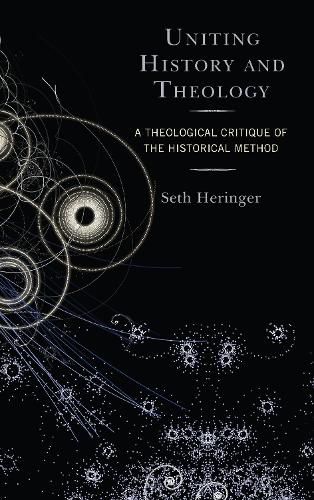Readings Newsletter
Become a Readings Member to make your shopping experience even easier.
Sign in or sign up for free!
You’re not far away from qualifying for FREE standard shipping within Australia
You’ve qualified for FREE standard shipping within Australia
The cart is loading…






Uniting History and Theology argues that, for too long, Christians primarily have used the historical method to make historical claims. In doing so, they have used a method grounded in an incomplete understating of German historicism, thereby closing off investigation of the past from the aesthetic and God. The author contends that Martin Kahler, Wolfhart Pannenberg, and N. T. Wright have been unsuccessful in their attempts to unify history and theology because they have not yet rejected the historical method as the primary way to think about past events. Unsatisfied with the various mixtures of history and theology, the volume looks to the contemporary philosophy of history for new approaches. After having examined these approaches and their critiques of the current historical method, the work proposes that an intentionally Christian method is needed. Setting out five cairns that mark the path forward for such a method, the author argues that narratives must be taken seriously; objectivity and neutrality do not exist in historical accounts; historians must find ways to unite the past, present, and future; aesthetics should be used to judge historical narratives; and Christians should write boldly Christian history.
$9.00 standard shipping within Australia
FREE standard shipping within Australia for orders over $100.00
Express & International shipping calculated at checkout
Uniting History and Theology argues that, for too long, Christians primarily have used the historical method to make historical claims. In doing so, they have used a method grounded in an incomplete understating of German historicism, thereby closing off investigation of the past from the aesthetic and God. The author contends that Martin Kahler, Wolfhart Pannenberg, and N. T. Wright have been unsuccessful in their attempts to unify history and theology because they have not yet rejected the historical method as the primary way to think about past events. Unsatisfied with the various mixtures of history and theology, the volume looks to the contemporary philosophy of history for new approaches. After having examined these approaches and their critiques of the current historical method, the work proposes that an intentionally Christian method is needed. Setting out five cairns that mark the path forward for such a method, the author argues that narratives must be taken seriously; objectivity and neutrality do not exist in historical accounts; historians must find ways to unite the past, present, and future; aesthetics should be used to judge historical narratives; and Christians should write boldly Christian history.